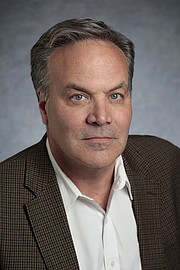It was a close election year in 2002. A late barrage of commercials may have made the difference for the party that won the governor's office and control of the Legislature here in Milwaukee, Wis.
Within months, the donors who gave at least $725,000 used to buy air time for those commercials were rewarded with a state contract so generous it was eventually ruled unconstitutional.
It was another highly competitive time during the recall elections of 2011 and 2012. Again, a big donor came through with $700,000 in campaign advertising money used to help a party keep control of the governor's office and Legislature. Within months, state laws were rewritten to ease environmental regulations for the donor's industry.
Should citizens in a democracy know about such donations? How else can voters determine whether their elected representatives are working for them or for a much smaller group of powerful interests who might even live in another state or country?
This donor information is becoming increasingly difficult to find at the same time that more money than ever is flowing into state elections.
When the U.S. Supreme Court determined that buying political commercials is a form of First Amendment protected speech, it effectively erased a century of campaign-finance limits. Many states passed those limits during an economic era similar to our own in that decades of technological innovation had concentrated enormous wealth in the hands of a privileged few.
For some early 20th-century oil, railroad, mining, timber and communications barons, it wasn't enough to own businesses that employed hundreds of thousands—they wanted to own the government, too. Politicians like Theodore Roosevelt and Bob LaFollette, supported by the average citizens they represented, worked to cap their influence.
I'm not criticizing the Supreme Court's "Citizens United" decision to protect advocacy spending as free speech. If a billionaire runs for governor, and has virtually unlimited personal resources to spend on campaign commercials, why shouldn't groups of less wealthy people have the freedom to pool their resources in opposition? I get that. The problem right now is that the old restrictions on donor influence haven't yet been replaced, at the federal or state level, with new rules to limit the power of the few over the many.
One simple solution could help, and Sunshine Week is a good time to start the conversation: Let the voters know who is financing political campaigns by requiring full and immediate disclosure of major contributors to the campaigns, parties and groups buying political ads before an election.
That will let citizens see if tribes are spending $725,000 in a last-minute push to back Democrats, as in 2002. Which, in turn, may make it harder for those Democrats to negotiate eternal casino compacts in private, removing the voters' ability to ever renegotiate them.
That will let voters see if a mining company is spending $700,000 to elect Republicans, as in 2011 and 2012. Which, in turn, may make it harder for those Republicans to quickly ease environmental regulations for mines here in Wisconsin without an open debate.
We learned of the mining donations by accident when a U.S. Appeals Court mistakenly unsealed them in the controversial John Doe II investigation of possible illegal coordination between private groups and political campaigns. Those limits on coordination no longer exist. That doesn't mean the donors should remain secret.
We learned of the tribes' donations when our reporters checked the financial reports politicians and parties must file twice a year—meaning months after the election. Today, thanks to modern technology, major donors to all political actors buying pre-election advertising could be reported immediately if required to.
Why should any honest politician of either party oppose immediate full disclosure of who is paying for political advertising?
Big donors won't like it, claiming fear of criticism might inhibit their willingness to speak with money. But really they just don't want to lose power by negotiating in the light of day, where support for law changes and business proposals must be won through public forums and bidding processes.
It's harder and messier. But that's real democracy.
George Stanley is the editor of the Milwaukee Journal Sentinel. He can be reached via email at gstanley@journalsentinel.com and followed on Twitter @geostanley.



Comments
Use the comment form below to begin a discussion about this content.